I WANT TO LEARN KOREAN!!!!!!!
I WANT TO LEARN KOREAN!!!!!!!
Hi! I am pathetic I know but I love kpop and I love kdramas. Please help me learn Korean! I'm bellow line of poor from middle eastern country. I have no means to enroll in online paid courses or buy books from foreign sites. I am proficient in English, ok in French and I am native Farsi speaker. Do you have *anything* like ANYTHING at all for free that I can use to learn Korean in normal way that I can follow step by step? Thank you so much! xo xo
#bts #korean #korea #army
Hey there! You're not pathetic at all, you're just doing your best and genuinely enjoying what you like. I'll lay out for you here some stuff, so you can choose what you find useful.
Free lessons from beginner to intermediate.
The title is self-explanatory.

You can also learn on Coursera or Seemile Korean, all those courses are free. Mirinae is also free, but grammar notes are locked if you don't have subscription. Duolingo and Lingodeer have a lot, ... There's plenty of free online sites to watch dramas, shows, listen to kpop,... You can also follow Japanese tv shows hosting Korean idols, where you hear both Korean and Japanese versions of the same songs.
More Posts from Oliviasstudyblrshit and Others

Here are some podcasts for those of you that learn or speak Spanish. Many you can find on iTunes, on Android using Castbox, or on their own websites/RSS feed. Other podcasts: Arabic| French | German | Italian| Russian| Ukrainian| Eurasia
Language Learning
Accelerated Spanish
Coffee Break Spanish
Discover Spanish
Language Transfer: Complete Spanish
Learn Spanish Daily Podcast
Learning Spanish for Beginners
Light Speed Spanish
Medical Spanish Podcast
Notes in Spanish: Beginner
Notes in Spanish: Intermediate
Notes in Spanish: Advanced
One Minute Spanish
One Minute Latin American Spanish
Real Deal Spanish
Spanish by Choice: Transcripts here.
SpanishPod101
Spanish - SurvivalPhrases
Speak Spanish with Maria Fernandez
Beginner-Advanced Listening
Advanced Spanish with Spanish Obsessed
Español Automático: Includes transcripts.
Españolistos
Hablemos Español (Mexico)
La Casa Rojas: Transcripts can be bought.
Learn Argentinian Spanish
My Spanish Podcasts
News in Slow Spanish (Spain): Includes transcripts.
News in Slow Spanish (Latin America): Includes transcripts.
Notes in Spanish: Gold: Transcripts can be bought.
Podcast en Spanish
Spanishpodcast: Includes transcripts.
SpanishPodcast.net: Includes transcripts.
Show Time Spanish
Unlimited Spanish: Includes transcripts.
Spanish Only
00 Podcast: Movies
Al Filo de la Realidad: Occult, UFO’s, pseudoscience.
Campamento Krypton: Pop culture.
CienciaEs: Science podcasts
Cultura, contracultura, y recontracultura: Culture.
Economía para la Ciudadanía: Economics.
El Amor Después : Relationships and love.
Engadget: Technology.
Es Salud: Health.
Es una Trampa: Star Wars
Fallo de sistema: Sci-fi, comics, movies.
Gameover: Video games.
Histocast: History
Juego de Tronos : Game of Thrones.
La Papa: Answers to unique questions.
La Parroquia: Humor.
La Rosa de los Vientos: Mystery
Lo-Fi: Relationships.
Melomania: Classical music.
Memorias de un Tambor: Spanish history.
Nadie sabe nada: Humor.
Negá Todo : X-files
Nunca Ayudes a Nadie: Productivity
Oh My LOL: Humor
Radio Ambulante: Like This American Life
Radioshock: Random interesting topics.
SBS Radio: News
Señaladores: Literature.
Sexopolis: Sex & sexuality.
Siglo 21: Music.
Son y sabor: Music
Terror Y Nada Más: Horror.
Verne y Wells Ciencia Ficción: Sci-fi and stories.
Argentina Podcastera: Several interesting podcasts from Argentina.
iVoox: Several podcasts can be found here.
Radio Nacional: Several podcasts from Colombia.
RTVE: Several podcasts from Spain that you narrow by category.
You can find waaay more podcasts in Spanish simply by going through Spanish radio stations. I’ve seen podcasts for Pokemon, poetry, geology, and beer. You’re bound to find something you like :D
hi i really want to learn kanji/katakana but i dont know where to start
Hi! Yeah, Japanese can be really daunting at first because it feels like there’s so much to learn and many places to start. I’m not sure whether or not you know hiragana already, but I’m going to list the way I started with Japanese kana (hiragana + katana) and then moved on to kanji. ლ(╹◡╹ლ)
Anything in bold is something I use/used/highly recommend!
1. LEARNING THE KANA ALPHABETS (HIRAGANA + KATAKANA)
I personally recommend learning the alphabets separately. Master one alphabet (I recommend hiragana first because it’s what you’ll use the most), and then move on to the next. I spent 2 days learning and mastering hiragana, and then slowly mastered katakana over a period of a few weeks because hiragana is everywhere, but katakana wasn’t an immediate concern for me. Obviously you need to learn both, but if you know hiragana you can jump into grammar, kanji, and other lessons while slowly mastering your katakana skills and becoming familiar with that alphabet through katakana vocabulary.
Here are some kana resources to try out!
Learn Hiragana: Tofugu’s Ultimate Guide *
Learn Katana: Tofugu’s Ultimate Guide *
Hiragana Drag-n-Drop
Katakana Drag-n-Drop
StickyStudy (phone app; on-the-go flashcards for learning kana)
Real Kana (quizzes you in different fonts to help you get used to different styles)
Practice katakana with Pokémon
* I’m not personally a fan of mnemonics, but I know a lot of people swear by them so it’s worth trying them and seeing if they work for you!
Both kana alphabets will become easier with exposure, so just keep practicing them over and over!
2. KANJI
Okay, so I’m going to be honest – everyone learns kanji differently. Some people benefit from just writing them 100 times, other people need flashcards, and some people can see them 2 or 3 times and remember them forever. You’re going to have to find the best way to learn for you, but the following resources will at least get you started. The rest is up to you ^^
Japanesetest4you – a good way to learn kanji is in vocabulary words, so once you’ve learned hiragana you can jump right in to learning new vocabulary and mastering kanji along the way! I love this websites way of splitting vocab into JLPT levels
StickyStudy (phone app) – this costs ~$9.99, but is unbelievably useful because it has kanji split into grade levels, allows you to decide how many you see everyday, and so on. I also like that I can use it on the go!
MindSnacks (phone app) – also lets you practice kana, but can expose you to kanji in a fun, game-like format
WaniKani – people have mixed feelings about this website because it works for some and not for others, but the first 3 levels are free so you can get your feet wet and decide if it’s right for you!
Memrise courses
This N5 verb list – a good start to basic, common kanji you should learn!
TEXTBOOKS + BOOKS
Genki – as far as I know, this is one of the most popular textbooks for learning Japanese and I can vouch they’re really good. They teach certain amounts of kanji each lesson and expose you to those kanji continuously, eventually removing the furigana to force your brain to remember the kanji reading + meaning alone!
Basic Kanji Book – I’ve personally never used this, but I see it everywhere on langblr and it seems like a popular way to start learning kanji
When it comes to kanji, I think it’s important to understand how to read them and understand how they work in Japanese. Almost every kanij has multiple readings. Kunyomi (訓読み) is the Japanese reading and is generally used when one kanji is by itself, while the onyomi (音読み) is the Chinese reading and appears in compounds.
For example: the kanji 話, when by itself, is read はなし (story), or はな (as in the verb ‘to speak’ - 話す, hanasu). However, when found in a compound such as telephone (電話 でんわ), the kanji is read as わ/wa. I recommend reading Tae Kim’s Guide on kanji to further understand them! Understanding how kanji operate in Japanese was really helpful for my own learning.
I think it’s also important to remember that even Japanese people didn’t learn kanji all at once! They learned them by grade, learning anywhere for 80-140 kanji per year until they were in high school. These are called The Jouyou Kanji (常用漢字) and are essentially the 2,000+ kanji Japanese people are expected to know by the government. You can learn more about them here and here.
Good luck with your studies and I hope this helps!






free printable pomodoro tracker!
download it as a png or as a pdf on my google drive!
available in monochrome, red, and green. just ask for more colors or adjustments!
let me know how it goes. tag me in your post with an @ or using the tag studywithvictory!
credit to @phoebe-does for the quote in the example! <3
don’t know what a pomodoro is? more info under the cut:
Keep reading
TALK TO ME IN KOREAN IS ALL PAYED NOW!!!!
Do you have anything at all from TTMIK to share for free???????? I like they curriculum but I can't pay subscription. My parents won't give a cent for Korean. They think I will have more success and oportunities if I learn French or German. I would appreciate anything you can give me. Tnx a lot! Love ur blog!
Hey! Here ya go! You can begin with this (all levels are included): audio, textbooks, workbooks and stuff like that.
I also have few of their "kpop fan letters" and books like that. But I don't think it can help you much at the beginning.




it’s already february 🌾✨
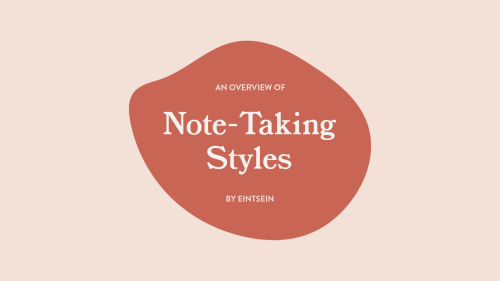

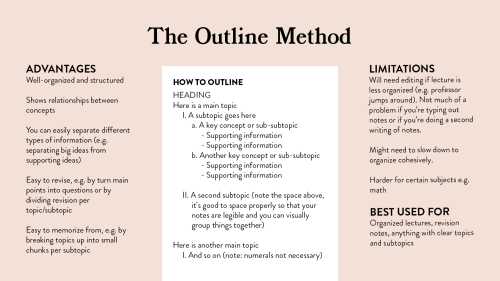
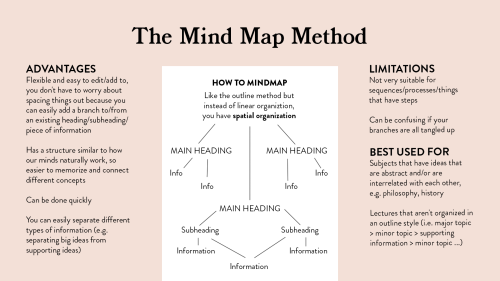

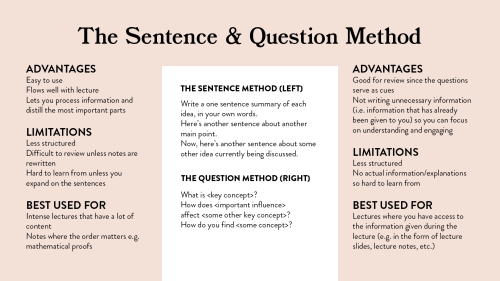


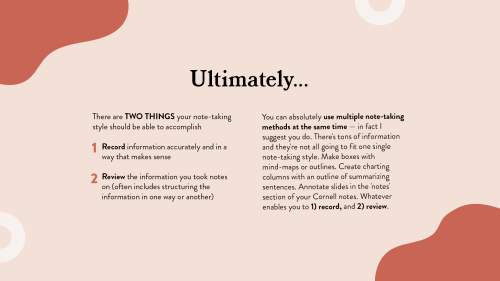
An Overview of Note-Taking Styles
Note-taking is one of the most essential skills a student should master. It allows you to record and review information to be used in the future. But what’s the best way to do so? Here’s an overview of note-taking styles that can help you maximize your learning!
hello! i'm only starting to learn japanese and i'm finding it hard to know where i should start with the kanji. do you really have to learn kanji separately and memorize both their pronunciations or can you just learn the kanji in the vocabulary?
omg no! don’t stress yourself out like that anon!!
okay, i’m going to be real with the japanese language learning community: you all are doing waaaaaaaay too much when it comes to kanji.
there. i said it.
learning kanji does not have to be a headache!
i spent the first 6 months of my japanese learning “career” (for lack of a better word) trying to figure out the best way to learn kanji because every website and book was like “here’s the kunyomi, here’s the onyomi, now learn them both” but the fine print of that learning method says “you’re going to f*cking struggle”
but then i started realizing that kanji i read all of the time, i didn’t even “properly” study like those articles said. i didn’t know the kunyomi and onyomi for 行 for ages, but i knew it was read いく in 行く and こう in words like 旅行 and 直行. because i learned those words in context and on their own.
a few months after i came to japan, i started asking japanese people how they learned kanji and every single one of them answered the same way: they learn through vocabulary. i once asked my boyfriend how he learned kanji in grade school, and he said that they were basically given a kanji, and then they were given a list of vocabulary that included that kanji. they then memorized the vocabulary and grew to know the kunyomi and onyomi readings.
which, spoiler: kunyomi and onyomi is not always an accurate measure. lots of compounds use the kunyomi, some of them add dakuten (as in ちゅうごく instead of ちゅうこく in 中国), and others add っ (as in ちょっこう instead of ちょこう in 直行). this really isn’t something you can just magically guess.
but it’s important to remember that everyone learns differently. i don’t learn individual kanji – i learn kanji within various vocabulary words. i make sure to get as much exposure to the various ways a single kanji can appear within a larger compound, so 高 is not just a single kanji, but it is 高い and 高校生 and 高価.
i do, however, think it’s important to understand the meaning of a kanji. this can help you decipher the meaning of a word you don’t know yet. for example, 高価 (こうか) means “high price.” 高 means high and 価 means price. knowing their meaning individually can help decipher the meaning.
in this way you can argue that yes, knowing the individual readings of these two kanji makes guessing the reading of this word easier, but 価 can also be read “ke"! you can’t guarantee an accurate reading all of the time, but with more and more exposure to individual kanji, you will be able to tell.
which brings me to my main point: learning kanji is an individual experience. i, personally, think that learning onyomi and kunyomi readings for 2,000+ jouyou kanji is a HUGE WASTE OF TIME, but there are a lot of people out there that do this methodically and know lots and lots of kanji and vocabulary. i, personally, need kanji in a larger vocabulary word in order for it to stick, and my brain just catalogues the various readings away. that’s how my brain works and learns, but it’s not how everyone else works and learns.
it’s important to find what works for you.
that being said, if you’re just starting out i highly recommend Jakka. it’s a website meant for japanese grade school teachers and has tons of grade school kanji material broken up into their appropriate grades. japanese school children are expected to learn and master a certain amount of kanji + vocabulary each grade level, so if you’d really like to learn like a child, learn like the school children do! (the website is in japanese but fairly simple to navigate.)
i hope this helps a little anon! and remember that learning kanji isn’t a race. if it takes you awhile to learn them, don’t worry. everyone learns languages differently.


spring quarter is staring off with an unusual start. through all of the uncertainty, it’s key for me to stay in a healthy routine in order to feel sane right now. grateful for a safe place to call my second home, water, electricity, and technology now more than ever before!
now listening:
wish you were sober- conan gray

Expanded Consciousness

hey lovies!!
even with the current socioeconomic crisis, the prospect of moving from high shool to college or sixth form is still looming over many of us.
so i've compiled a list of things i've learnt and some advice that would've been so handy if someone had told me before hand!
it's divided into three sections for easy reading. if anyone want to add anything, feel free!! i'll update this at the end of second year!!
before college
if you're going to get folders for your subjects, a sturdy totebag (like from lush) is a shout. but a backpack is an even bigger shout.
before sixth form/ college starts, buy a planner or a journal. i have one that i got in october and omg guys. i have used almost every page and i'll probably only have to buy a second one in december. it's sturdy, i can set my own layout and!! it's got about 256 pages!
unless your teacher specifies otherwise, get a day folder!! it'll just be a smaller folder which you can take what you've done from that day or that week and move into your home folders. plus, it's just so much easier and more convenient.
you don't need to complete every single book on the reading list before you go back. try to become familiar with the ones that interest you the most or all of them, whatever floats your boat. just enjoy your summer!
hydroflask. hydroflask. hydroflask. you know, for water, tea ect.
find out what you like for breakfast. if you're like me, you never had breakfast before school at high school. that won't fly now! i love porridge to go so i can sort that out before my morning shower and then by the time i leave the house, it'll be the right temperature for my half an hour walk.
get yourself a little toiletries bag. put in tissues, hand sanitiser, makeup if you wear it, deodorant, body spray/perfume, hand cream, lip balm. you can even go as far as to get portable floss thingies
portable chargers are a life saver!
during college
the first week should be spent getting used to your learning centre. figure out the quickest route to your classes.
take a picture of your timetable and keep it as a lockscreen for like 2 weeks or until you get the hang of it
and most importantly!! learn everything you can about your library's loaning, returning and reserving process. if they also have recourses like flashcards, hefty amounts of paper, now is a good time to learn that for the future
if you have a personal tutor, try and stay on their good side as much as possible! they'll be your hypeman, your point of access and hell they might even become a great source of laughter and relief during the week.
you'll meet people in your classes that you don't vibe with. you'll meet people that you do. maybe, this is your chance to get away from past school friends/ acquaintances. whatever your case, try and stay grounded. don't sacrifice any part of yourself to fit in and definitely do not feel bad if people begin to drift away. everyone has different schedules and are at different stages, it's normal
during the school breaks (easter, christmas ect.) relax! obviously, complete the homework you've been given but take an actual break too!! trust me on this one
the balance of your work life, social life and sleep will be hectic and confusing and at some times, frustrating. you'll be able to do it, i can assure you. just never sacrifice your work life or your sleep for your social life!
relating to the above one, if you do get invited to events or your friends want to do something after college for fun, go have fun! at the end of the day, as long as you're caught up, your free time is yours.
also christmas time? if you want to get presents for your new college friends, by all means go ahead. but i would go by the rule to not get christmas presents during the first year of friendship unless you know 100% what to get them!
decide whether or not you're going to go paperless, have some paper documents for some subjects or just use printed documents and folders by about november time. that way, you know that your organisation system is consistent and you're not stressing out
condense your notes as you go along. the majority/all key words, key diagrams, and key concepts should be condensed or on flashcards by the time summer comes around
this is something i wish i knew beforehand. anki!! is an absolute life saver. if you're like me, you recently found out about the gem that is spaced repetition. anki does the work for you as long as you insert the info and remember to visit it everyday!
if you need support (academic, emotional ect.), it is perfectly fine to admit that and utilise the resources at your centre. hell, i strongly advise that you do so just for peace of mind
for my philosophy class, i'd advise doing this for any essay based subject, the day or two before an in class assessment, do some practise essays or answers with one or two of your classmates. you'll learn from each other and you can even turn it into a little study date as long as you do the work!
jstor, massolit, cambridge companions, emag, subject reviews (law review ect. by hodder education), podcasts, youtube videos and crash course will make your life so much easier!
try to go to some university lectures/taster days (i know it'll be hard but there are also online options)
whiteboards. whiteboards. whiteboards!! that's all i have to say
remember to have fun!! i know people say that these two years will be the best two years of your life but they kinda will be. the freedom is unmatched and the friends you may make will really help in stressful situations
now is the time to learn how to budget effectively. sixth form can cost a pretty penny if you're not diligent
if you have a part time job- ensure that you're being treated fairly. if you're not, leave. the weekend stress on top of your shool work will not be helpful and it won't benefit you in anyway!
after first year
if you haven't condensed all of your notes for the past year, complete it during the summer. you'll be at much more ease than you think
if you're doing any extra work (EPQ, medicine admissions test prep or law admissions test prep, coursework), do it during summer or at least have the bulk of it done. it will save you so much time and stress! the same with UCAS applications
there you go my loves! if you've got any questions, my inbox is always open!
-
 1mheren0w liked this · 1 year ago
1mheren0w liked this · 1 year ago -
 montorandu liked this · 1 year ago
montorandu liked this · 1 year ago -
 oliviasstudyblrshit reblogged this · 1 year ago
oliviasstudyblrshit reblogged this · 1 year ago -
 silk-vanille liked this · 1 year ago
silk-vanille liked this · 1 year ago -
 hameko12 liked this · 1 year ago
hameko12 liked this · 1 year ago -
 queensjoker liked this · 1 year ago
queensjoker liked this · 1 year ago
